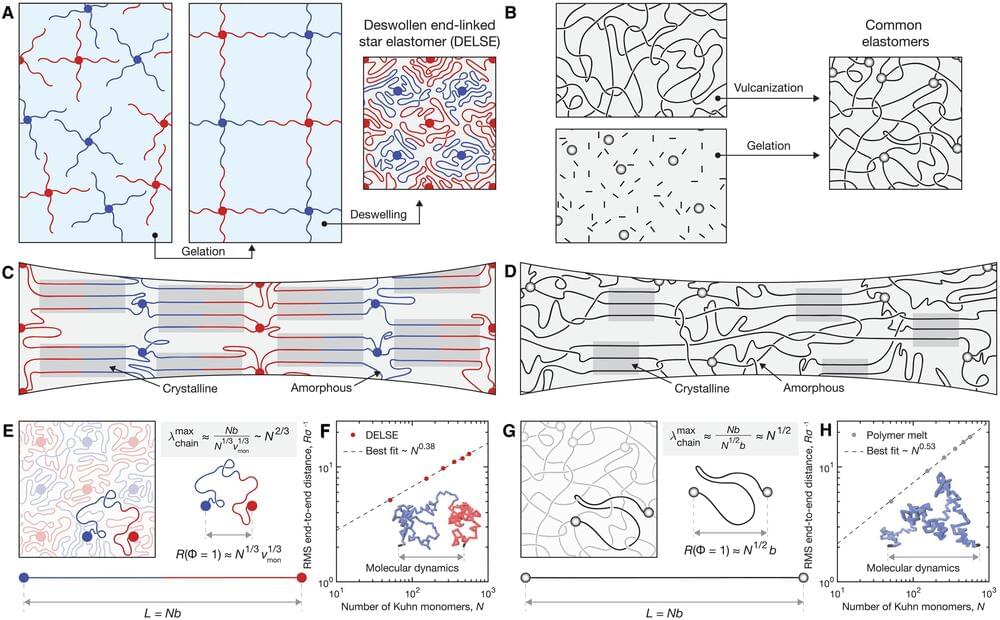Strain-induced crystallization can strengthen, toughen, and facilitate an elastocaloric effect in elastomers. The resulting crystallinity can be induced by mechanical stretching in common elastomers that are typically below 20%, with a stretchability plateau.
In a new report now published in Science Advances, Chase M. Hartquist and a team of scientists in mechanical engineering and materials sciences at MIT and Duke University in the U.S. used a class of elastomers formed by end-linking to achieve a percentage of strain-induced crystallinity.
The deswollen and end-linked star elastomer abbreviated as DELSE reached an ultrahigh stretchability to scale, beyond the saturated limit of common elastomers, to promote a high elastocaloric effect with an adiabatic temperature change.
